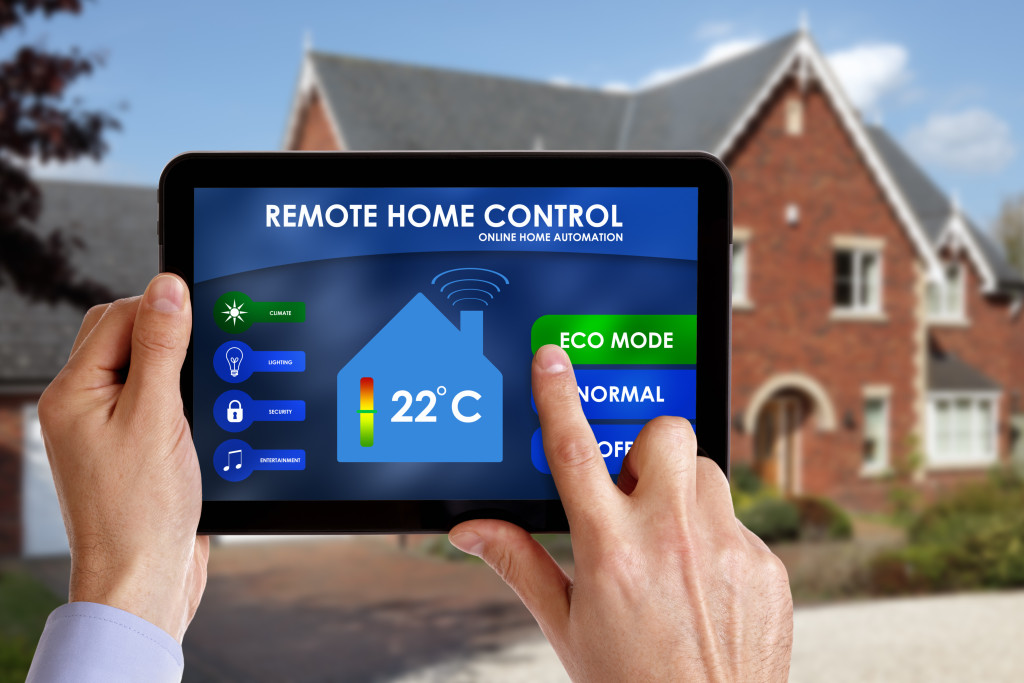Think about it. How many times have you searched your brain if you locked the house or set the security alarm? Do you remember how you rushed back home thinking that you forgot to turn off the sprinkler system in the yard? How do you know that your kids are doing their homework and not watching television? If only there was a way to do all these things even while you’re in a meeting at work, right?
But there it is: modern homes are now equipped with smart home technologies that do exactly all these things—lock the house, set the alarm, turn off the sprinkler system, and monitor kids as they do their homework. The last bit you will have to do yourself via the security cameras installed inside the house, but you get what this means, right? A smart home will enable you to control everything in your house despite not being there. Yes, even if you are on a two-week vacation or work travel, you can still lock the house, monitor the nannies, and control the thermostat of the heating and cooling system. That’s how intrusive technology has become, but that’s also how convenient managing households has become.
Smart homes can control everything in the house—from the HVAC to the appliances. You can even turn on the sound system if you have a feel for a certain song once you get home. These smart home controls have become an enviable feature of any smart home. But for your home to be truly smart, it must maximize all the functions and features of the smart home automated system.
Security
A smart home is not a smart home unless it has a security system that can tip off the homeowner if a burglar tries to enter the house. The tip-off usually comes in the form of a text or email. The system can also send an alarm to the authorities if you avail of such a plan. Some popular features of the security system are keyless entry and camera equipment.
Detectors
Again, what’s a smart home that cannot detect a possible fire? Smoke and carbon monoxide detectors are common features of a smart home. They usually cost around $100 per unit, but they are essential to every home. Aside from smoke detectors, it also makes sense to have gas and water leak detectors.
Heating and Cooling

This is one of the most popular features of a smart home. Aside from making sure the doors are locked, homeowners also want to control the thermostat in their homes for two main reasons: one, it saves money to turn it on and off remotely (especially when you forget about it); and second, it is convenient to come home to a warmed or cooled home. It also saves a lot of time since you don’t have to wait for the home to reach your desired temperature.
Lighting
The easiest way to see if a smart home is truly smart is to have an automated lighting system. The possibilities are endless because you can turn on/off the lights even when you’re not at home. You can dim the lights to create a relaxing atmosphere at home. Depending on your mood, you can create millions of color combinations and variations. And the best thing about this is that automated lighting systems are cheap and effective.
Appliances
More advanced smart homes also integrate their appliances into the automated system. What appliances can be remotely controlled by the homeowners? Almost everything. The washer can tell you if it is finished with the cycle, while the refrigerator can warn you that you’re running low on milk and other supplies. Do you know that you can turn off the coffeemaker from your bedroom if you forget to do it? The possibilities are endless since technology connects almost every device you can think of.
Energy Management
This feature is found in more advanced smart homes, but it is nonetheless a critical part of it. Smart systems can track your energy usage and identify the areas where you are wasting electricity. This will not only help reduce your electricity bill, but it will also help conserve power and save the environment from further degradation. If you have solar panels, the energy management feature will also track the amount of power the panels are generating.
Smart homes are not the future. They are here now. They’re not a bandwagon. Instead, smart homes will become the standard soon. If you haven’t already tried its many features, it’s time to start now because the convenience it offers equates to improved well-being for you and the family.





